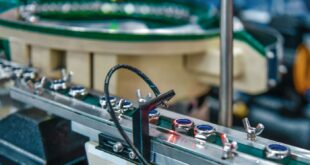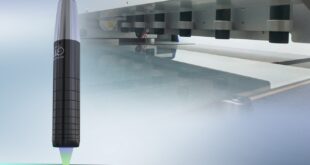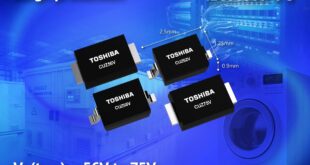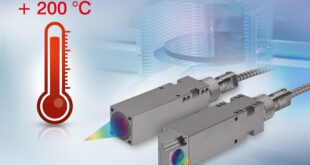NCTE has expanded its 2300 torque sensor series with the introduction of a new variant for lower torque-range measurement tasks down to 0.5Nm.
Available with full support from NCTE’s UK distribution partner, Ixthus Instrumentation Limited, the series now covers a torque range from100Nm down to 0.5Nm.
With measurement bandwidth up to 1,000Hz, speeds to 10,000rpm and accuracy to 0.5%, these non-contacting, long-life sensors are perfect for torque, as well as speed, shear, and angle measurement in precision mechanics, testbeds for smaller electric motors and engines, machine tool performance control, controlled screw fastening and capping operations, robotic manipulators and more.
NCTE’s torque sensors use the physical principle known as the inverse magnetostrictive effect in a patented process where magnetically encoded components in the sensor are modified by a surrounding magnetic field. Each sensor includes two magnetic fields in opposing directions which takes care of unwanted interference such as that from EMC. This real-time process, where torque measurement may be static, or dynamic detects miniscule magnetic changes for highly precise data acquisition.
Factory calibrated and certified sensor outputs are 0–10V DC, 4–20mA, CANbus and USB with supply voltage requirement of 5 to 28 VDC. The USB option includes PC analysis software.
The 2300 series is available in nominal diameters of 8, 9 and 15mm with seven measurement range variants between zero to 1Nm and zero to 100Nm. Full technical specifications are available from Ixthus Instrumentation.
The plug-and-play sensors do not require external signal conditioning and as the sensor becomes a part of the shaft component, integration is easy. This non-contacting sensor technology has excellent resilience to shock and vibration and a choice of protection class allows use in harsh conditions – even in oil or underwater – through a temperature range from -30 °C to +85 °C.
NCTE’s extensive range of standard torque sensors is available for measurement up to 10 KN with customised variants available on requests.
The sensors are widely used for applications including but not restricted to agricultural and commercial vehicle take-off shafts, engine and turbine testbeds, e-bikes, robotics and handling machinery, performance motorsports, and 1/2 automotive engineering.
 Engineer News Network The ultimate online news and information resource for today’s engineer
Engineer News Network The ultimate online news and information resource for today’s engineer




